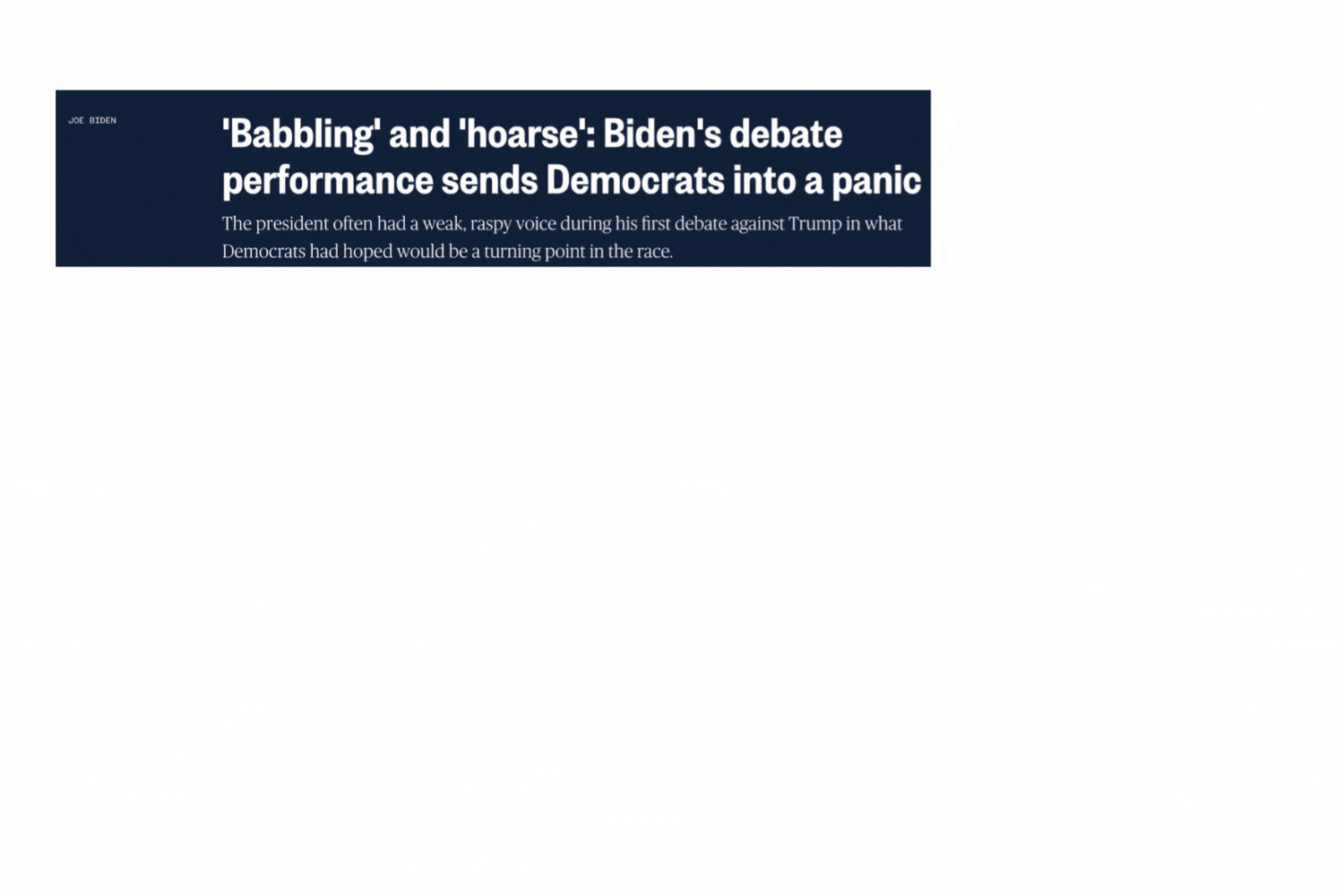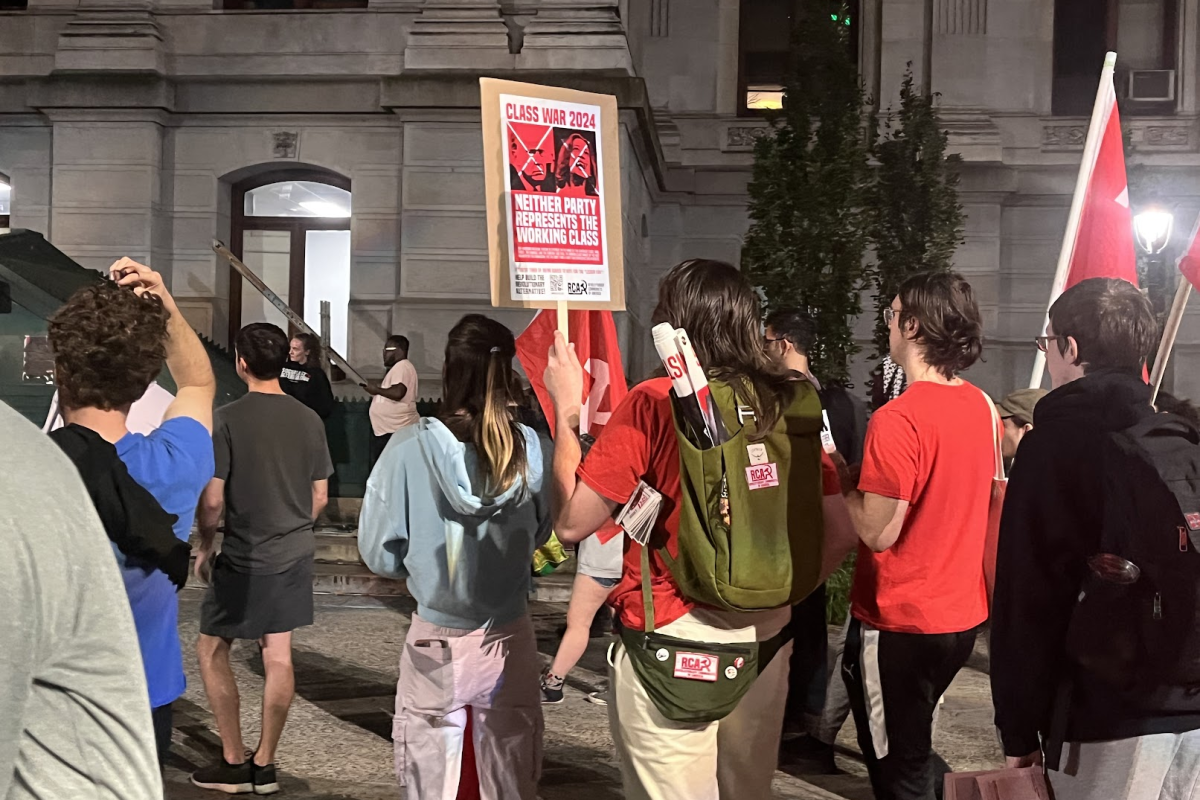Large media networks focus exponentially on elections in the months and weeks leading up to the event. But as soon as a winner is declared, all the uproar and frenzy dies in days or weeks.
After the dust settles, it’s left to the general public to care about politics and the public policies that inevitably affect every American, whether a data engineer on Wall Street, a high school activist, or a socialist group.
“Generally, people only get involved when they’re angry or frightened about something. Otherwise, most people don’t think about politics much, except when there’s something concrete for them to do. That’s partly why there’s more attention when an election is on the horizon,” said David Meyer, a sociology, political science, and urban planning professor at the University of California, Irvine.
Mindy Romero, research assistant professor at the University of Southern California and director of the Center for Inclusive Democracy, elaborates and explains why Americans place so much emphasis only during election season.
“Media attention on the election is present to some degree during the entire election cycle, but it ramps up significantly in the couple of months leading up to the election and certainly in the weeks prior. There’s lots of reasons for that,” Romero said.
She says that at the beginning of the season, the main focus is on the Democratic and Republican nominations. But as it gets closer, the focus is explicitly changed to the people.
“As we get to the September-October months, there’s some coverage of their platforms and policies. There’s typically a lot of coverage about the polls. There’s so much interest in the ‘horse race.’ Who’s going to win, who’s likely to win, and so forth,” Romero said.
According to the Harvard Kennedy School’s Shorenstein Center on Media, Politics, and Public Policy, the “horse race” can be described as covering an election as one would cover a horse race, with a more significant focus on polls over actual policy proposals.
“I think it’s even more intensified this cycle because the race was so close. People were looking for the latest poll to say there’s some difference for the next media story,” Romero said.
Romero adds that there was also “genuine interest” in the polls to see which candidate was polling ahead.
“Even just a level of desperation — people are looking for some kind of hope,” Romero said.
Aside from “horse race” coverage, there was coverage of Republican candidate Donald Trump’s and Democratic candidate Kamala Harris’ campaign trails.
“Donald Trump has brought a new element to it,” Romero said. “The statements that he makes that are offensive or concerning get a lot of coverage.”
Romero explains that each of the two primary candidates’ rhetoric can be attributed to political polarization. The candidates agree that this election has a lot at stake.
“I think we know we’re incredibly polarized as a nation. There are so few truly swing voters in each of these swing states,” Romero said.
However, after elections are won, the flurry of media coverage slowly dies down. For example, Google Trends show that the term “Joe Biden” is searched so much more during an election year, even an election month, compared to during the popularity when Biden has been in office. People care more about election results than actual policies that have come about due to those elections.
“Attention fades after the votes are all counted because an outcome has been determined. It’s just the same as most people don’t want to watch a ball game once they know who won,” Meyer said.
Trump’s America
According to the Associated Press, 76 million people voted for President-elect Donald Trump. Among them is Phillip Xiao, a first-generation immigrant who currently works as a senior data engineer for a finance company on Wall Street.
“Originally, I supported the Democratic Party because democracy used to have a lot of policies that benefited immigrants,” Xiao said.
However, Xiao thinks that in the past ten years, the Democratic Party has gone to the extreme left, which prompted him to change political affiliation.
“They allowed a lot of illegal immigrants to come to this country, and I feel as a legal immigrant, our interests and our rights got destroyed by them,” Xiao said.
Aside from immigration, he says the top three policy choices he values are public safety, equality, and the economy. Trump was the candidate who aligned with his values the most during this election.
“Trump definitely has pros and cons. The thing that made me vote for Trump is that I feel the past four years have been worse than the previous four years before that,” Xiao said.
He believes the Biden administration has distributed too much money for COVID-19 and sent too much for foreign wars.
“The inflation is making my life and my friend’s life worse, and I feel most U.S. citizens suffer. That’s the reason I voted for Trump,” Xiao said.
Xiao thinks that Trump would bring positive change to the country by “bringing the common sense to the country, and bringing the traditional values to the country.”
“The Democrats lost the election for a couple of reasons. First, Harris is a very bad candidate. She cannot face real concerns and issues. She blames everything on Trump while she is positioned to change it,” Xiao said.
Harris’ Hopes
A walkout occurred at the Philadelphia City Hall three days after Election Day. The organizer, junior Aster Chau from the Academy at Palumbo, brought together other youth around the city.
“This protest was a result of all the frustration we felt as students having to go into school after the election results came out, and all the fear, anger, and emotions that came from that,” Chau said. “This was a two-day process of getting schools out and speakers to come and express these feelings and know that we’re not alone in any of our fights.”
She says it’s been unsettling how so many lives are at stake, but they aren’t able to vote or aren’t educated on candidates’ policies.
“Although I don’t love either candidate, organizing and pushing for changes under a Harris presidency felt more feasible. Trump’s plan for school, immigration, and Project 25 is just so scary. It’s worse or worser between the two, but I couldn’t imagine what my life would look like under another Trump presidency, pre-election results,” Chau said.
Chau says that on the election day, she would “choose peace and not look at any of the election stuff right now.”
“Walking to school the next day, there were people in the hallways, crying and just so scared for what this would look like for us. And I think that seeing Pennsylvania turn red and Philly being majority blue was a very odd feeling for a lot of people, especially those who are able to vote,” Chau said.
Carlmont student Jax Manning also shares their reaction of disappointment.
“I was really disappointed in the refusal of a large portion of America to recognize all the things he’s done wrong and the incredible stupidity that he somehow has rolling around inside of him,” Manning said.
They think that we’re very privileged to be living in California, “where we likely won’t feel the worst impact of his policies and attacks.”
“I expect that he’s going to go after the thing that affects me the most, trans rights. And I expect he’ll go after them pretty urgently, given his rhetoric,” Manning said.
However, they are unsure if Trump will go through with what he promised during his campaign. But Manning said they want to expedite the process for legally changing their name to match their gender identity.
“I think I’m going to try to get my parents to push that through before he gets inaugurated in case he puts federal limits on that,” Manning said.
An Alternative
Usually open to visitors, the night after Election Day, the gates to the Philadelphia City Hall were locked. Just outside was a group of protestors protesting the results and advocating a socialist alternative.
Katie Willow*, an organizer with Socialist Alternative, a political organization, says that the goal of this protest was to start building a movement for mass struggle in the wake of election results. But the protestors at this rally also didn’t support Harris.
“We did not advocate voting for Harris; we believe that the Democrats are also not a good avenue for working people to be successful,” Willow said.
Murph Murphy*, a high school student in Philadelphia and rally attendee, expresses fear for the next four years.
“I’m not really for the system at all. I don’t know if I’d call myself a liberal. Yeah, I’m against Trump, and I would consider myself an activist,” Murphy said.
Despite being unhappy with the election results, they aren’t denying them either.
“I don’t think that’s up for me to decide. I’m not going to sit here and be like, ‘he faked the election,’ or whatever. It’s not a me versus them thing; I’m above saying that he faked it. If he won, then that’s fair and square. But I don’t stand for what he stands for,” Murphy said.
Murphy believes it’s important to group together with communities and build organizations that can directly make changes in your community.
“A lot of people say you can’t change anything. And you know, a part of that might be true, but if you don’t stand up, you’re definitely not going to change anything,” Murphy said.
They say that that whole attitude got us here in the first place.
“You can’t deny that it’s scary when someone is actively against you. Someone big and powerful in the White House, that’s crazy. It’s so threatening and scary and makes you feel alone,” Murphy said. “But when you’re with others who feel the same way, you’re powerful.”
Next Four Years
Despite each having a separate reaction to Trump winning, anecdotally, people around them have stopped being as civically engaged.
“I think we honestly don’t have a massive portion of very politically minded people. I know a lot of people who are like, ‘that’s really unfortunate,’ and then move on with their lives,” Manning said.
This lack of interest is also reflected in voter turnouts.
“We have some of the lowest turnout rates among established democracies around the world,” Romero said.
According to the PEW Research Center, in 2020, there was the highest voter turnout rate in America’s history, but only 66% of eligible voters voted.
“We should not be talking to people about voting only around election time, two weeks before, or even two months before. We need to be talking about the importance of voting and tying it to the issues that people care about in their communities all the time,” Romero said.
Romero suggests a post-election evaluation of whether the people voted in should remain in office.
“People who are incumbents rarely lose their seats, and usually there has to be something pretty dramatic that’s happened,” Romero said.
In this election, both Trump and Harris could be considered as incumbents, having both served in office.
“Our elected officials are supposed to be representing us, our needs, or wants, or desires — not just people who vote for them but for their constituents whether they voted or not,” Romero said.
Our system is designed in a way that our elected officials have to answer to a lot of other entities other than the voter, according to Romero.
If parties and elected officials can schedule public events to discuss policy problems and legislation in process, some people are likely to stay more involved. Community organizations can play a critical role in this process, according to Meyer.
“It’s a wonderful idea to build community organizations that maintain connections among citizens when there’s not an imminent crisis or election, but it’s very hard to do. Most people are busy and often cynical about the government,” Meyer said.
He suggests that community groups tend to do better when elected officials schedule many events so they’re accessible.
“Even so, most people don’t engage much in politics unless they think their participation is important and potentially effective,” Meyer said.
*In accordance with Carlmont Media’s anonymous sourcing policy, the names of these subjects have been changed to prevent any social and legal consequences.




